I am trying to make a list of weights that are being brought to a trip to outer space. The way I have tried to show how many people are coming is this:
def flcr():
try:
Value1 = int(input())
except ValueError:
print("That was an incorrect format! Try again.")
flcr()
global x
x = Value1
Then the user has to input the weights one by one. This is what I tried:
def enter():
print("How much is each flight crew member bringing on the trip? Enter one entry at a time, this will be Earth weight.")
amount1()
def amount1():
try:
if x > 0:
equation1 = [float(input())]
x - 1
amount1()
else:
print(listFlcr)
except ValueError:
print("That was an incorrect format! Try again.")
enter()
When I input the weights though, I assume x just resets itself instead of subtracting itself by 1, so my input is infinite. I want to have a code that will allow me to enter the right amount of weights, so if I say there are 2 people coming, I can only input two weights.
If someone could help me out I would greatly appreciate it!
